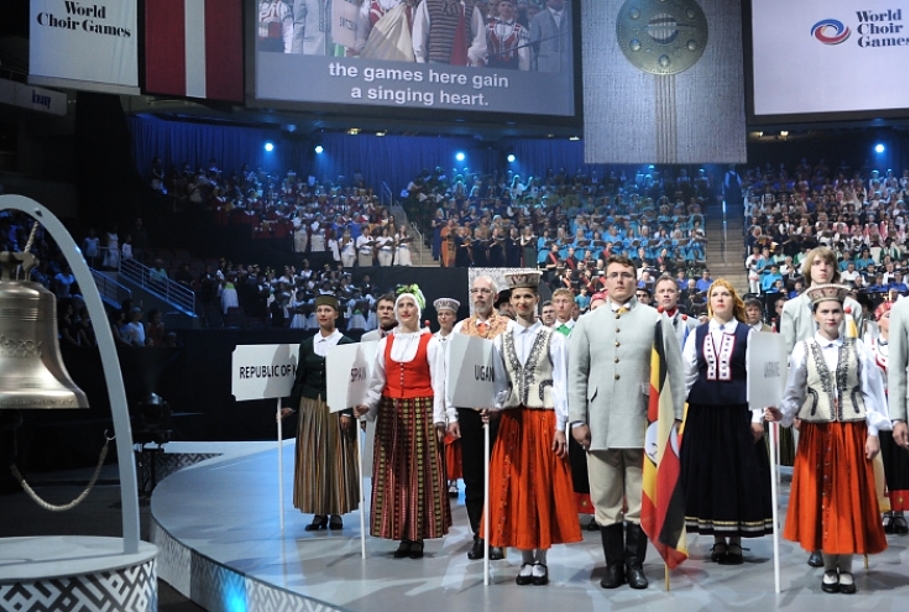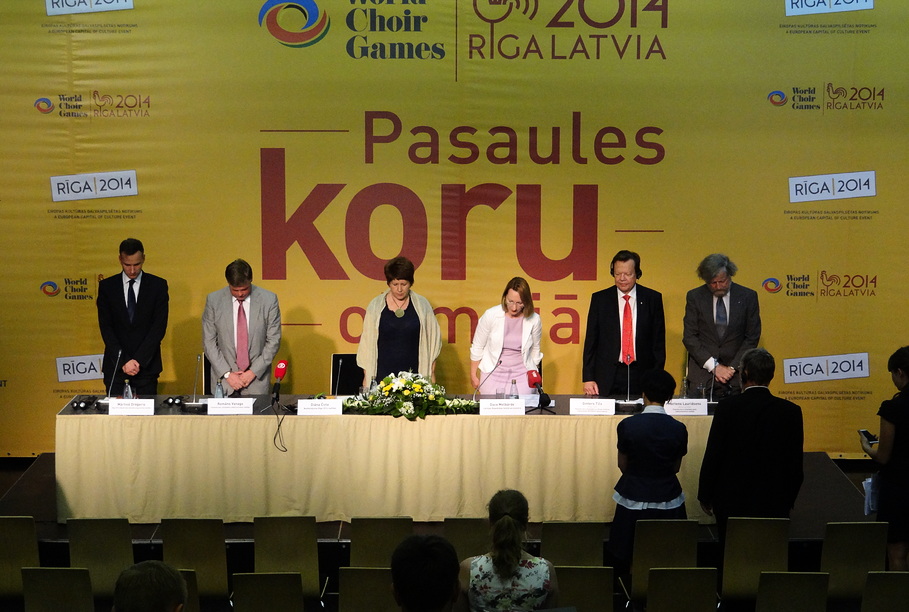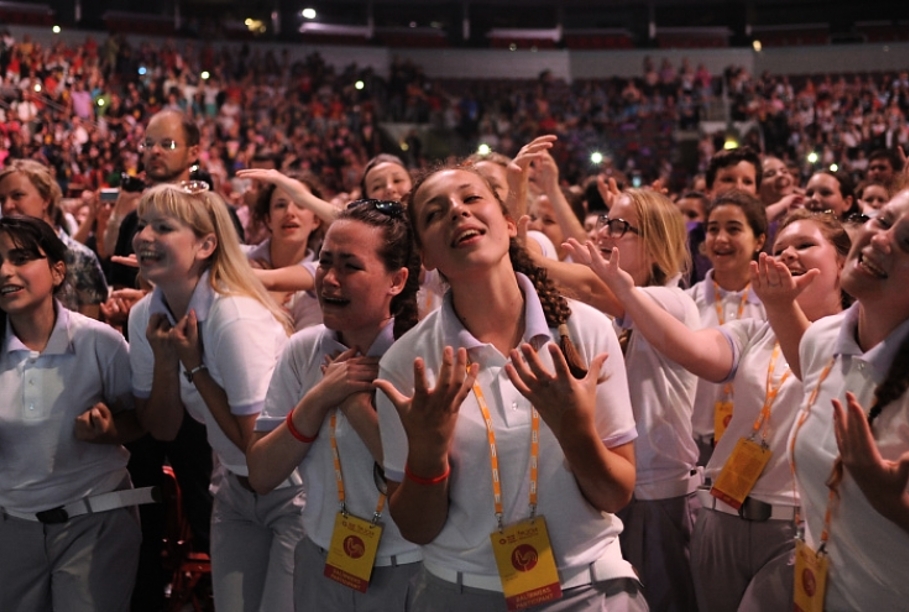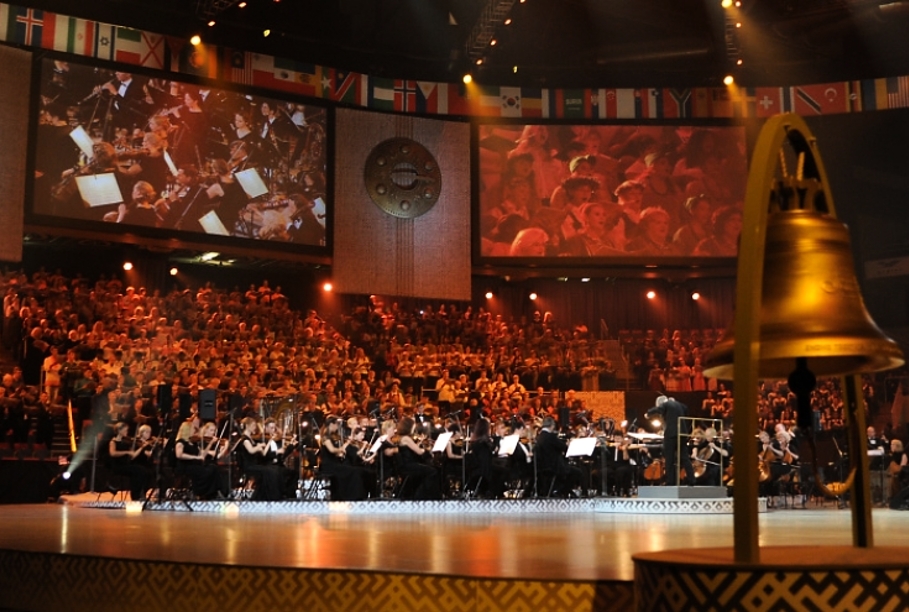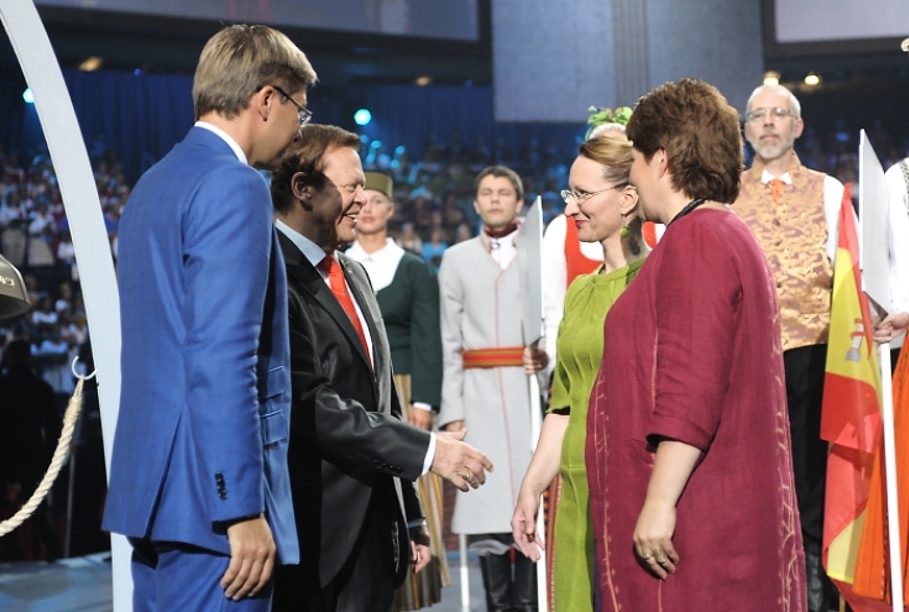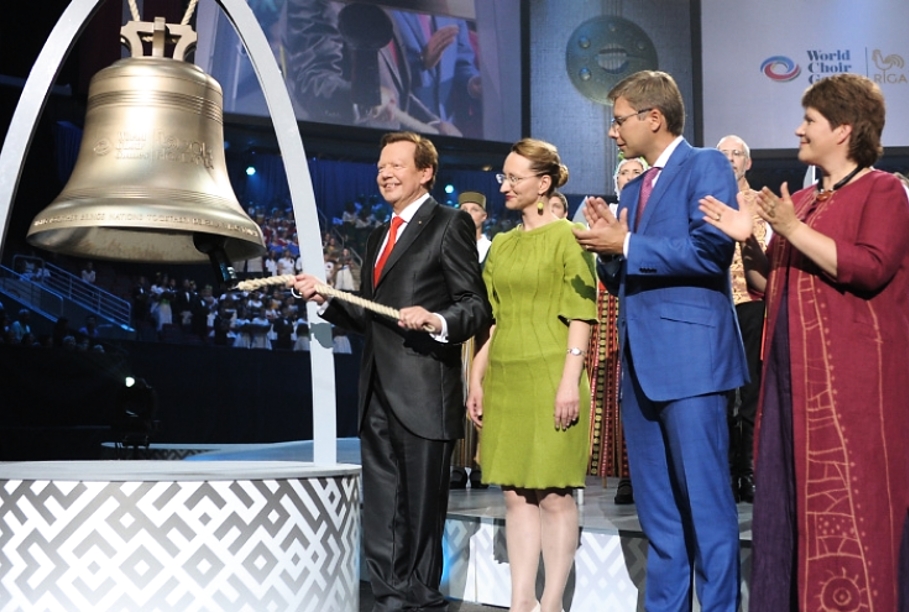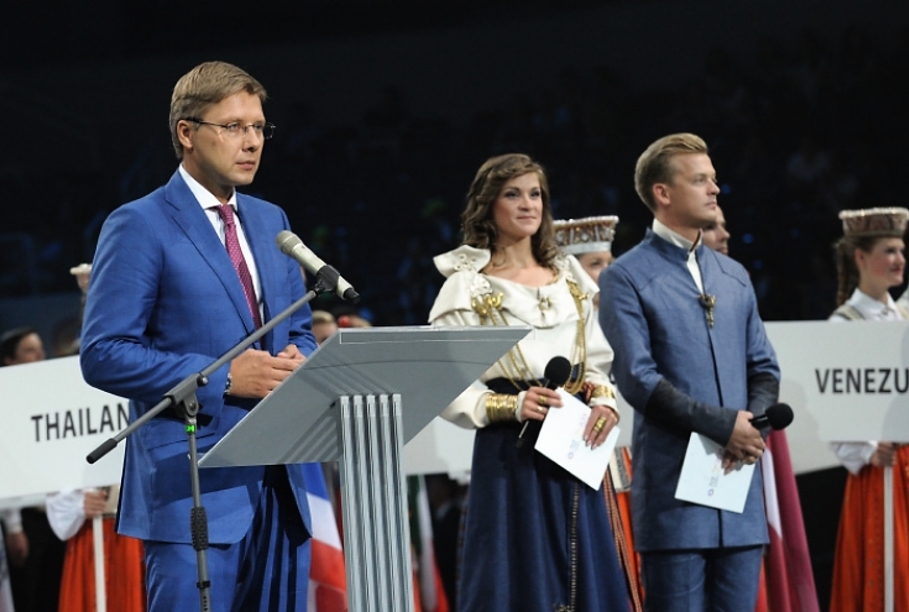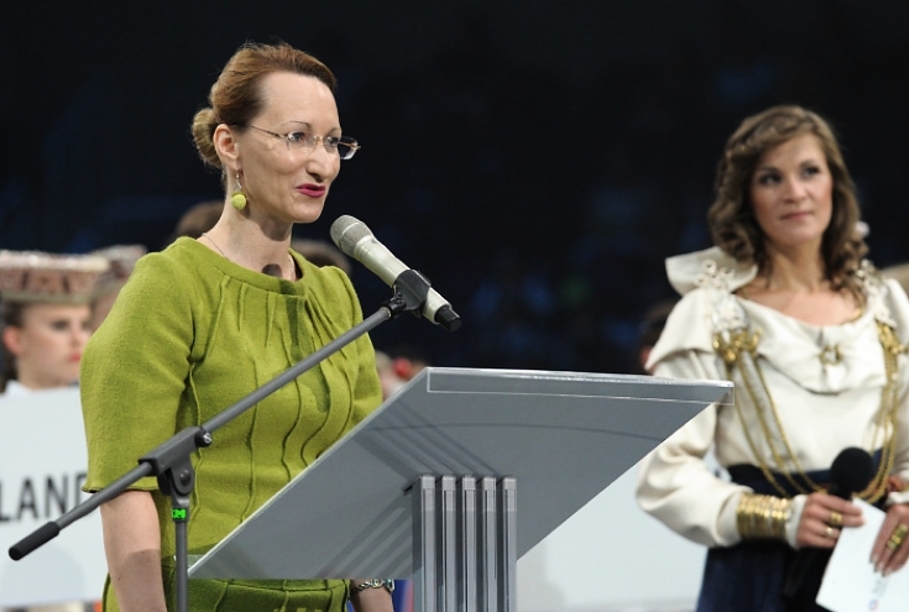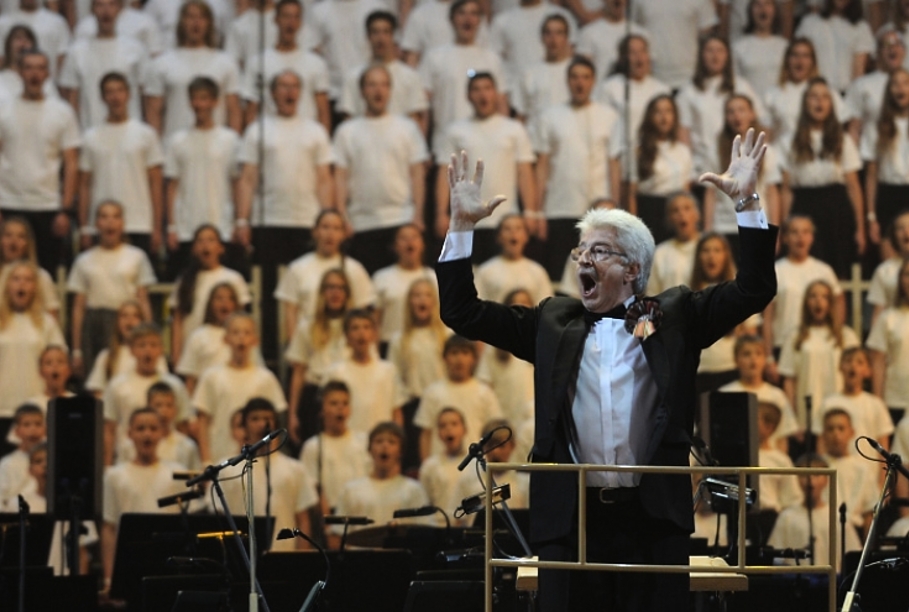Speaking to the remaining handful of press corps following a brief moment of silence to honor the perished on MH17, Latvia’s Minister of Culture Dace Melbarde said that the Games had “truly put an awareness of Riga and Latvia on the map for our foreign guests,” and hoped the organizers’ “mission – to unite nations and spread peace and understanding around the world – find new waves of force with each meeting.”
Riga2014 foundation head Diana Civle, whose organization handled the local partnership role for the event, said that “Europe’s capital of culture in these ten days has seen a colorful and diverse global festival. Thanks to these singers from around the world Riga became the capital of choirs, with the zeal to assert the positive power of culture, the colors of national cultures, and how songs can truly unite people.”
Interkultur head Gunther Titsch lauded the Latvian organizers for handling the enormous challenge: “460 choirs, more than 800 competitive performances, 71,000 meals served at the central canteen, almost 80,000 room-and-board accommodations and thousands of kilometers of transport shuttling – all set up at the highest level. Thanks to the volunteers without whom we would not have been able to create such a sincere atmosphere in the city,” he concluded.
On his part, artistic director Romans Vanags expressed pride in the Latvian choirs, which led the list of medalists, closely followed by other choral “superpowers” like China, Russia, Indonesia and the United States. Vanags told LSM that the combined “dream team” of Interkultur, with its global choral events experience, and the Latvians with their song festival expertise, was key to the World Choir Games’ triumphant success this year.
Titsch told LSM that the local organizers would decide when and whether to publish the report on the financial outcome of the Games, like Graz and Cincinatti have done for 2008 and 2012, respectively, apparently unlike Chinese cities of Xiamen and Shaoxing in 2006 and 2010.
Finally, Morten Lauridsen said “we are witness to a very important event – that we can unite in one song and that is something the whole world can learn from the participants of the World Choir Games.”
“This is an event where 27,000 singers shared the most personal instrument they have – their voice. I’m proud to have been part of this event,” the composer of choral works said.
Later, at the closing ceremony, chief organizer Titsch told the cheering crowd “these were the best and biggest games in our history.”
“Latvia is a small state, but a great nation! We’ve become so attached to the people of Riga! So many choirs have spoken of your friendliness and hospitality,” he went on to thank the city, whose mayor Nils Usakovs also spoke at the ceremony.
The crowd stood for the parade of flags and launched into ovations for Ukraine. Solidarity with Ukraine was apparent at many times during the games. Latvian choirs at the final champions’ concert sang with Ukrainian flags in hand, dedicating the sorrowful folksong “Pūt vējiņi” to MH17. On Friday participants sang to express their condolences at the Netherlands’ Embassy in Riga, where the national flag is flying at half-mast in honor of its 154 citizens among the 298 passengers and crew who lost their lives in the disaster.
The choice of Sochi, while selected by Interkultur years ago, has caused consternation among many local participants and organizers, who have spoken out against the site in light of recent Russian aggression in support of Ukraine’s pro-Moscow separatists.
In separate comments Saturday Culture Minister Dace Melbarde called it “incomprehensible, because an event whose goal is to foster peace and friendship between nations and to unite peoples will happen in a state that literally has just perpetrated the violent annexation of another’s territory.”
On his part, speaking by phone Saturday from Georgia, Foreign Minister Edgars Rinkevics told LR that Latvia must act with reserve toward any participation in Russian-hosted events.
“This doesn’t mean we’d somehow prohibit choirs from participating. It’s up to the people themselves, but whether Latvian taxpayers’ money should support that – I have my doubts,” he said. “But if I sang in a choir, under such circumstances I definitely would not go to Soči,” he added.
